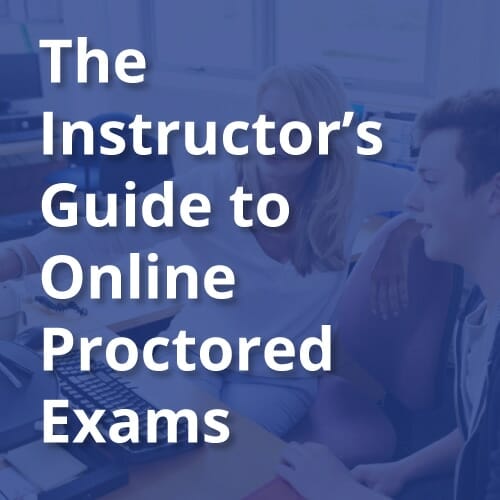Honorlock’s AI listens for specific words or phrases, such as “Hey Siri” or “OK Google” to identify students who may be attempting academic dishonesty.
BOCA RATON, Florida, January 23, 2020 — Honorlock, an online proctoring service that is transforming how educational institutions protect the academic integrity of online courses and assessments, today announced new AI capabilities designed to thwart academic dishonesty during online assessments. Honorlock’s AI analyzes the student’s voice transcript in real-time to identify keywords commonly used by students who have committed acts of academic dishonesty during their online exam. If a keyword is detected by the AI, it alerts a live proctor to pop into the exam session via chat to intervene and redirect the student.
“Honorlock’s Voice Detection is unique in the industry as it goes beyond audible sound spikes and listens for specific words or phrases that indicate the student needs help from our live proctor or alternatively that they are attempting to enlist unauthorized resources during their online exams,” said Michael Hemlepp, CEO of Honorlock. “By combining AI with a live virtual proctor, our clients benefit with improved exam integrity and a better exam experience for their students.”
Feedback from faculty users has indicated that simple alerts detecting sound is not useful and is typically over flagged within exam sessions. This is annoying for faculty and puts undue stress on students. Honorlock’s new AI capability delivers a more robust voice detection system that reduces false flags and gives students who like to read questions aloud the peace of mind that they will not be flagged inappropriately.
About Honorlock
Honorlock is revolutionizing the way education institutions protect the academic integrity of their online courses and assessments. Used by three of the 10 largest universities in the US, Honorlock’s proprietary features provide educators with the assurance that their test is protected, and students with the flexibility of proctored exams whenever and wherever they need it. Honorlock is dedicated to providing world-class service and support 24/7/365. www.honorlock.com.
Contact: Tess Mitchell tmitchell@honorlock.com 941-504-3255














